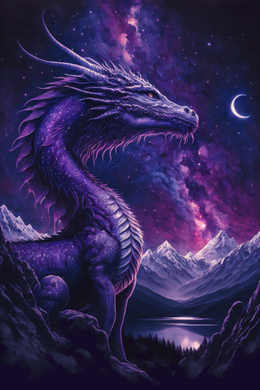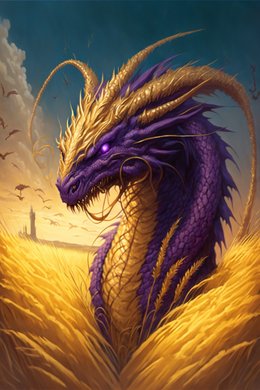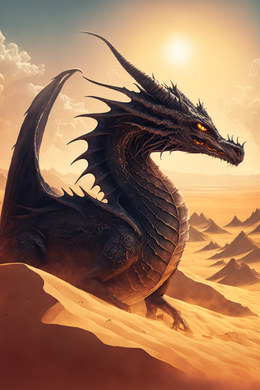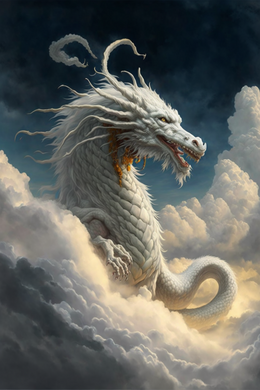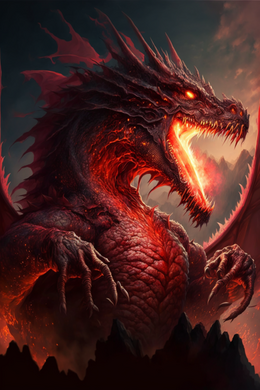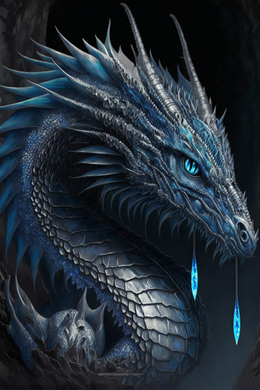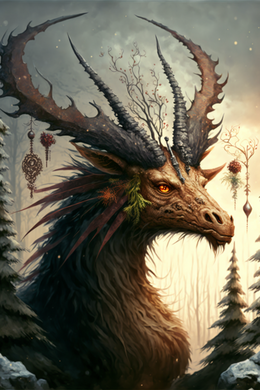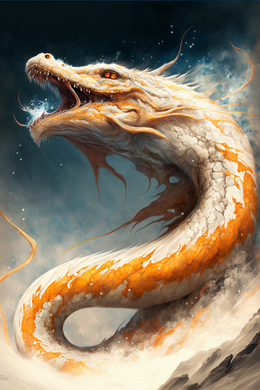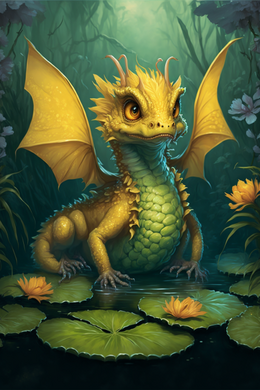More actions
No edit summary |
No edit summary |
||
| Line 117: | Line 117: | ||
|[[File:Drafonf.png|260px|thumb|left]] | |[[File:Drafonf.png|260px|thumb|left]] | ||
| | | | ||
*'''Identity:''' Valerius is the Dragon of | *'''Identity:''' Valerius is the Dragon of change, of evolution, of betterment and self control, and of perpetual furtherance of creation and improvement upon creation to create a better self. Valerius is very much a self focused Dragon with an ideology that completely disregards the Occult problem while focusing more on purity and cleanliness of self, and improvement of both mind and body in the face of a world that is designed to break these things down. | ||
*'''Racial:''' Valerius is seen as the Urlan Dragon, Valerius herself appearing more beast-like than scaled Dragon, with crowns of antlers and horns from all manner of body parts. Valerius is said to be the mother of the Oorl Worms, and as such is seen as an indirect or even direct creator of every single Urlan in the world, at least for those who acknowledge Dragon Worship as their faith. Valerius is however also followed by those who have become disillusioned with Unionist evolution ideals, or worse yet, form the basis of those fading from Dragon Worship and into the hands of Void Worship, upset at how little the Dragons actually help the faithful. | *'''Racial:''' Valerius is seen as the Urlan Dragon, Valerius herself appearing more beast-like than scaled Dragon, with crowns of antlers and horns from all manner of body parts. Valerius is said to be the mother of the Oorl Worms, and as such is seen as an indirect or even direct creator of every single Urlan in the world, at least for those who acknowledge Dragon Worship as their faith. Valerius is however also followed by those who have become disillusioned with Unionist evolution ideals, or worse yet, form the basis of those fading from Dragon Worship and into the hands of Void Worship, upset at how little the Dragons actually help the faithful. | ||
*'''Clade:''' Valerius is supported by Verus of Spring, Vesper of Summer, Vitalis of Autumn, Vena of Winter, Viatrix of Mind, Viola of Soul, and Vortigerus of Body. This Clade’s Dragons also have names in the native Urlan tongue, though the Urlan use the common and Oorl tongue translations interchangeably. Valerius is called Haarn in Oorl, while the other Dragons are called Hoshaara, Herkhat, Hattalis, Henhush, Hax, Henfos, and Hunefos. | *'''Clade:''' Valerius is supported by Verus of Spring, Vesper of Summer, Vitalis of Autumn, Vena of Winter, Viatrix of Mind, Viola of Soul, and Vortigerus of Body. This Clade’s Dragons also have names in the native Urlan tongue, though the Urlan use the common and Oorl tongue translations interchangeably. Valerius is called Haarn in Oorl, while the other Dragons are called Hoshaara, Herkhat, Hattalis, Henhush, Hax, Henfos, and Hunefos. | ||
| Line 126: | Line 126: | ||
*'''History:''' Valerius is perhaps one of the least seen Dragons. Even Nox appeared frequently to the Slizzar despite secrecy, and Caius appeared in the skies of Guldar despite living inside a Volcano. Valerius on the other hand, has never been witnessed by any living being directly. It is said that Valerius is incredibly shy, or simply does not want to be perceived. The only information anyone has ever gathered from Valerius, is from the flashes of memories of Oorl worms after Symbiosis, in which Valerius can be seen interacting with the Oorl worms and discussing ideologies with them. | *'''History:''' Valerius is perhaps one of the least seen Dragons. Even Nox appeared frequently to the Slizzar despite secrecy, and Caius appeared in the skies of Guldar despite living inside a Volcano. Valerius on the other hand, has never been witnessed by any living being directly. It is said that Valerius is incredibly shy, or simply does not want to be perceived. The only information anyone has ever gathered from Valerius, is from the flashes of memories of Oorl worms after Symbiosis, in which Valerius can be seen interacting with the Oorl worms and discussing ideologies with them. | ||
|} | |} | ||
===Armina, Weaver of Souls=== | |||
{| | |||
|[[File:Snakedragon.png|260px|thumb|left]] | |||
| | |||
*'''Identity:''' Armina is the Dragon of finality, the peace of death, the cycle of life and continuation of the soul, guardian of the Soul Rivers, and steward of the memories left behind. Armina is, similarly to Valerius, a Dragon that is very self focused and disregards the Occult problem, preferring to focus on the problem of Primal Revenants and the preservation of the Dragon Worship afterlife. | |||
*'''Racial:''' Armina is seen as the Suvial Dragon, supposedly once inhabiting the lands where the Suvial State now resides. Her appearance is one of old Suvial folklore, a more snake-like dragon without limbs that peacefully co-existed with Avinla in the land of fire as Avinla was made of the fire of the land, and Armina of the souls in the air. Because there are only few Suvial Dragon Worshipers however, Armina worship is not very common across the world. | |||
*'''Clade:''' Armina is supported by Amatus of Death, Atticus of Mourning, Amaranta of Memories, Amadeus of Revenance, Aleda of Rebirth, and Ambel of Rememberance. These Dragons (including Armina herself) also have Suvial names in their folklore, starting with Armina who is Yaadhaï, and her supporting Dragons Antimantë, Shokahë, Phooratpet, Punarjäma, and Myrë respectively. | |||
*'''Home:''' Armina has no real Temples anywhere in the world save for the Suvial homeland, and many of them were destroyed in the process of the Void-Outs. It is even believed by some of the Dragon Worshipers that these Temples were somehow used as anchoring points to aim the Void-Outs, as they often occurred directly above them. The largest remaining temple in the far north of the Suvial Lands is the Temple of Soul Revenance, which is largely ruined and abandoned, though is one of the only places in the world where the Soul Rivers pass through the columns and are visible even to those who can normally not see them. | |||
*'''Occult:''' Armina's stance on the occult is one of disregard in duty. Armina's work managing and securing the afterlife, as well as the functioning of the Soul Rivers takes so much of her energy (even in death), that she has no time to spend thinking about the Occult. Those who consider Armina their patron, often choose any of the other Dragons stances to align to. | |||
*'''Themes:''' Armina's themes are the color orange, the Soul Rivers, Death, Rebirth, and Birth, Souls, Primal Revenants, and combating Demonologists, something that Armina worshipers do engage with, believing that Demons (whether Void, Exist, or Ordial) inherently are dangerous to the Soul Rivers and corrupt the finite energy of Souls that exists in the world at any given time. | |||
*'''Worship:''' Armina's worship is done by seeking out Primal Revenants across the world, and either putting them to rest to let their Soul Essence return to the Soul Rivers, or recruiting them through Primal's version of Demonology to assist in whatever fight or defense of the Soul Rivers and the Draconic cause. Other forms of more local worship involve passing rites of the afterlife to the recently deceased, and helping with burials. | |||
*'''History:''' It is said that Armina co-existed with Avinla for some time in the Suvial homeland, but was considerably weakened as Cataclysm approached, for no real discernable reason. Eventually, Armina disappeared, and though (uniquely) the Estellon faithful in the area inquired with Avinla where she had gone, even Avinla could not say with melancholy in her tone, leading to one of the few recorded instances of Estellon Gods showing remorse over the seeming disappearance or passing of a Dragon. Armina has not yet been revived, nor any of her supporting Clade, leading some to believe that the Soul Rivers are unstable and in danger of collapse. | |||
|} | |||
===Zanobi, Fantasy of Magic=== | |||
{| | |||
|[[File:Yellowdragon.png|260px|thumb|left]] | |||
| | |||
*'''Identity:''' Zanobi is the Dragon of Magic, of playful natures and kind intentions, or joyful learning and well intended application, the creator of all Primal Mage-sparks, and the lender of power to all Archon who command some version of Dragon Magic. Zanobi is considered a compassionate Dragon towards the Occult, believing in a violence-free approach and safe cleansing of all the infected, while preserving Magic in Draconic form. | |||
*'''Racial:''' Zanobi is seen as the Allar Dragon, and the interactions between the Allar in Hadar and the supporting Clade are well recorded throughout history, until the sudden and seeming death of the Yellow Dragons (a colloquial name for Zanobi and her Clade) at the hands of some kind of mysterious and magical disease. This event is a major racial trauma for the Allar who tried to use all of their nation's resources to help find a cure, but could not, and could only watch their favored Dragons slowly wither away. Even the non-Dragon Worship observing Allar were hard-hit by this, as the Yellow Dragons had been instrumental in shepherding the Allar shortly after their arrival from Sendras. | |||
*'''Clade:''' Zanobi is supported by Zinia of Flowers, Zephyrus of Music, Zea of Games, Zoe of Quirkiness, Zola of Light, Zaida of Happiness, and Zinia of Peace. There are no Allar language names for these Dragons, as the terms were adopted by the Allar following the presence of some local Ailor tribes that were Dragon Worshipers. | |||
*'''Home:''' Zanobi has hundreds of Temples all over Hadar, nearly every Digmaan has at least some sort of shrine to the Yellow Dragons in their Palace or capital. There is no truly largest one, because the Yellow Dragons moved around a lot, and playfully interacted with the Allar in all of their temples. By far, the Yellow Dragons were perhaps the most interactive with mortals, spending nearly all of their time around the Allar after they arrived. | |||
*'''Occult:''' Zanobi's stance on the Occult is benevolent cleansing, meaning that she does inevitably want everyone cleansed, but does not support it being forced on anyone. Curiously above all, Zanobi's ideology expresses a right to Magic, and that even the Occult infected Magic users, should be given Dragon Magic in compensation for their loss of Corrupt Magic. Dragon Worshipers are still not in agreement if Magesparks of Void and Exist origins are actually Primal in nature but corrupted, or something else altogether. | |||
*'''Themes:''' Zanobi's themes are the color yellow, water, the sea, chrysanthemum flowers, long colorful ribbons and insects. Zanobi is the source of all Magic, and the one who weaves the threads of fate to grant the lucky few Primal Magesparks to cast Dragon Magic. She is also the source of all Dragon Magic in general, even if Draconic Mages are mostly Regulus faithful and Gray Witches. | |||
*'''Worship:''' Zanobi worship is done by casting Magic for the enjoyment of others, and making the lives of others better and more kind, and spreading happiness. Zanobi in general is seen as a feel-good and wholesome Dragon, while her Clade always acted more like a troupe of entertainers than divine entities. It should also be mentioned that Zanobi and her Clade were extremely small (for Dragons) no larger than domestic dogs. | |||
*'''History:''' Zanobi and her Clade were well known among the tribes of Ailor that lived in Hadar before the Allar arrived, but barely interacted with by the Slizzar, who were firmly Nox worshipers. When the Allar arrived, Zanobi quickly introduced herself, and chose to shelter them. It is rumored among Dragon Worshipers that Zanobi's Magic was used to keep the Sendrassians stuck in Sendras (ergo they were able to invade Hadar recently because Zanobi was dead). Zanobi and her Clades died shortly before Cataclysm in a strange Magical disease that slowly killed them one by one, an event that the Allar still see as a national failing on their part, having been unable to find a cure. The Yellow Dragons were recently revived, though haven't been seen in Hadar since. | |||
|} | |||
==Trivia== | ==Trivia== | ||
*Dragon Worshipers can change their preferred Dragon Throne, but tend to generally stick with one for their entire lives. Changing a Throne is not seen as something shameful, but continually doing it over and over is. It is also considered shameful if it is done on a whim, as opposed to a major life event. | *Dragon Worshipers can change their preferred Dragon Throne, but tend to generally stick with one for their entire lives. Changing a Throne is not seen as something shameful, but continually doing it over and over is. It is also considered shameful if it is done on a whim, as opposed to a major life event. | ||
Revision as of 02:54, 1 December 2022
| Dragon Worship | |
|---|---|
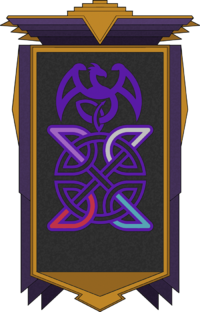 | |
| Religion | |
| Pronunciation | Dragon Worship |
| Origins | Unknown, presumed over 7000 years ago |
| Deities | |
| Regulus, Aurora, Marik, Severena, Caius, Nox, Valerius | |
Origins
Dragon Worship or Dregodar is commonly believed to be the world’s oldest Religion, one that is uniquely shared by many Races and potentially the most widely worshiped religion across the world, while other religions are fairly monolithic within their own Race or Ideology. The nickname Dregodar dates back to the earliest Dragon Worship cults among the Altalar during the days of the Allorn Empire, a name specifically used to refer to their cult. While Dragon Worship is thousands of years older than the Altalar, the last major group of people who worshiped the Dragons were a sect of Altalar, hence it carries their name. After the collapse of the Allorn Empire, Dragon Worship was mostly kept alive in the largest population groups by Ailor, hence why the Dragon Worship pantheon mostly carries Proto-Daen names, the language used by the Ailor slaves who suffered their existence under the Allorn Empire. Dragon Worship was in fact one of the largest if not only religion followed by the Ailor slaves in the west, as the Dragons remained somewhat visible and tangible, while the Old Gods had all but disappeared. Following the collapse of the Allorn Empire, Dragon Worship entered a lull, with pockets of various races like the Isldar, Songaskians, Slizzar, Sihai and Urlan keeping their traditions alive, though living with the knowledge that all the Dragons save the eastern had died. Dragon Worship has more recently exploded back onto the scene with modern events, the return of Dragons, and their enduring campaign to revive all the Dragons who could not truly be killed. Many regions previously thought Unionist converted suddenly revealed their hidden Dragon Worship habits, thus exposing that Dragon Worship was far from dead, but actually one of the major religions of the world, being just behind Estellon and Unionism as the third largest religion in the world by number of worshipers, and only barely ahead of Void Worship coming fourth.
Core Identity
Dragon Worship is a Religion centered around the struggle against (or with) the Occult, with each Dragon having their own ideology and needs, and prescribed way of living. Dragon Worship is somewhat of a unique religion in that most of the dogma was inspired by the Dragons, but never dictated by them. While there were certainly Dragons who worked with the idea of themselves being seen as Gods, and used whatever benefit they could from that situation, the majority of Dragons do not actively demand worship and don't wish punishment on those who stray from the faith. The Dragons have always strictly insisted that spirituality towards them is a personal choice, and that faith is a personal choice, and that no matter what religion anyone follows, simply being alive is good enough to serve their needs.
Tenets
- Bravery: Caius demands bravery from the faithful, or face his eternal wrath for cowardice and weakness in purging fire.
- Calm: Nox demands calm in the face of chaos and anarchy, for the steadiest hands and cleanest mind plot the most skillfully.
- Pleasure: Aurora demands pleasure, because the purpose of life is to proliferate. Marriage is just a legal obstacle.
- Ambition: Valerius demands ambition, because static contentedness is the death of progress and change in a world in need of it.
- Diligence: Marik demands diligence, because the task set out to the faithful is never done, never given reprieve, never an end in sight.
- Revenge: The Void stole Ruin from the Pantheon, and the Dragons bid the faithful never to forget the damage infection has brought.
- Charity: Severena demands charity, for the agents of life are created in the sentient, who must share their intellect for the benefit of others.
- Honest: Regulus demands honesty, because history is the true arbitrator of truth, and truth always prevails.
- Purity: Dragon Worship does not outright ban Occult from worshiping, but proclaims to be pure and mundane, is the ideal for everyone to strive for.
- Preservation: Dragon Worship is the only faith nominally focused on the preservation of the world as it is, all living creatures and plants, and living harmoniously with nature.
- True Magic: Dragon Worship pats itself on the shoulder for being the users of "true" (Primal) Magic, a sense of moral superiority over Void and Exist and Ordial follows after.
Beliefs
- Narrative: Dragon Worshipers have the hauthy opinion that all other creation myths are false, and that the Dragons are actually the true creators of the world. Naturally most religions have ideas about creation myths of their own, but Dragon Worship has one based on more tangible fact that myth. Inversely however, while all other religions have one "grand message" or intention to imprint on the faithful, something for them to prove or do in their life, Dragon Worship has no such conceit, and just requests that the faithful live their life to the fullest without causing undue harm on other living beings without respect for nature, while also respecting some of the behavioral tenets for good conduct set out by the Dragons. Dragon Worshipers do not believe in an afterlife, at least not strictly understood by other religions. There is an afterlife for the Dragon Faithful, however they call them the "Soul Rivers", in which Souls exist in a state of ignorance and unconsciousness, meaning that while a soul can be preserved, there is no such thing as a living and wake afterlife. Dragon Worshipers, because of this belief, live their life to the fullest as they have it, because they only have one life to live.
- Canon Evil: Canon evil in Dragon Worship is all that which comes from other planes of reality or existence, meaning anything that is Void, Exist and Ordial. Rather than painting all of it evil by default however, truth (and the individual interpretations and ideologies of the Dragons) vary wildly from Dragon to Dragon. While all roughly agree that Void/Exist/Ordial (called "Infection") is bad, they all practically disagree on how to deal with it, or how severely bad it actually is.
- Identity: Dragon Worship has no real concept of sex or gender, nor does it have a view on sexual orientation. The only thing Dragon Worship does profess, is the need for the faithful to keep reproducing because the purpose of life is to exist and multiply to further life. While some would argue this means they do not look favorable upon those of same-sex orientations, the reality is that Dragons believe that there are plenty of heterosexuals who reproduce excessive amounts, to compensate for the few chaste, unable, and unwilling reproducing individuals.
- Conversion: Converting away from Dragon Worship is not a crime per se, but there are subtextual responses that one might get from different faithful. Caius worshipers might for example consider it weak and spineless, while Nox worshipers consider it willful ignorance that makes one more stupid. There is no outright punishment, but Dragon Worshipers have been known to give the cold shoulder to "traitors" of the faith. They do not go out to convert others however, Dragon Worship is a religion entirely benched on the providence provided by the very tangible actions of Dragons, and the faithful in general do not proselytize, but answer and reflect with those who show interest.
- Sins & Taboo: Dragon Worship lacks traditional Sins and Taboos, because even the concept of Sin is considered divine. While a morality and code to live by is created and the implication is made that going against this code is sinful, there is no real punishment system for sinners, and an argument can even be made that a sin is only a natural result of Nerida, the Dragon of Sin, who creates sin as a byproduct of free will, which in turn creates the structure for religion. To be free of Sin is to be free of free will and faith, neither of which are considered a good thing, as Dragons contemplate that spirituality is one of the foundational needs of sentient living beings.
Gods and Goddesses
Dragon Worship is divided over the 7 Great Dragons, each which is supported by 7 Supporting Dragons. Technically there are many more Dragons, for example, while in the realm of the Silver Dragons under Nox they reign supreme, the Yellow and Teal Dragons also exist. These however do not express spiritual guidance or an ideology, and merely exist to fulfill earthly functions of the Great Dragons, and as such are also not considered Gods, merely agents of them. The supporting Dragons act like officers, each governing an aspect of reality and enforcing it within their realm and across the world. Dragon Worshipers consider the usage of Magic an encroachment on the realm of their Gods, for example, if a Mage were to turn back time on an object, this would be a violation of the Dragon Ramirus, who is the enforcer of time, ensuring it always moves forwards and never backwards. This is entire foundation of why Void/Exist/Ordial are considered corruption or "infection", because they deny the laws of reality and how things are in Aloria by changing the rules. Choosing one particular Patron Dragon is important to Dragon Worshipers, though only in the purview of how to behave towards Occult. Dragon Worshipers worship in some part all Dragons equally, but choose one in particular to theme themselves and their ideology after. A Dragon Worshiper is likely to have some sort of shrine to each Dragon in their home, but one particularly large shrine for their favored Dragon, whose general ideology they have adopted as their own. There is no conflict in worshiping Caius as favored, and still bringing homage to Regulus even if their ideologies on the Occult differ, each ideology is considered valid in their own Draconic authority. This does not, however, stop conflict from arising among Dragon Worshipers on the "right" way to deal with a problem (the Occult). Among Dragon Worshipers, a strained truce usually reigns to prevent conflict among themselves while the Occult remain a problem. but clashes frequently break out when for example a Regulus worshiper is trying to protect an Occult from a Caius worshiper.
Aurora, Arbitrator of Nature
Regulus, Crownbearer of Command
Marik, Peacewarden of the Dead
Severena, Penultimate Defender
Caius, The Final Judgment
Nox, Weaver of Silk Accords
Valerius, Force for Change
Armina, Weaver of Souls
Zanobi, Fantasy of Magic
Trivia
- Dragon Worshipers can change their preferred Dragon Throne, but tend to generally stick with one for their entire lives. Changing a Throne is not seen as something shameful, but continually doing it over and over is. It is also considered shameful if it is done on a whim, as opposed to a major life event.
- It is sometimes believed that Dragon Worship is compatible with Emended Unionism because Regulus being Cedromar is also a God in that pantheon, however this is not the case. Emended Unionism has some views about the Occult that are incompatible with Dragon Worship, and also generally prescribes to a more dogmatic life than Dragon Worshipers would tolerate. There may however be friendly relations between the two religions, which can be seen in Anglia where Regulus worshiping Isldar and Ailor live side by side with Emended Ailor.
- Infantilization or imitation of Dragons where not part of racial Abilities is considered taboo among the Dragon Worshipers. Imitation through mutations of Draconic features however is considered flattery. Dragons are however immensely offended, if their worshipers keep mini-dragon-like creatures as pets. Any religion would find this grossly offensive.
| ||||||||||
